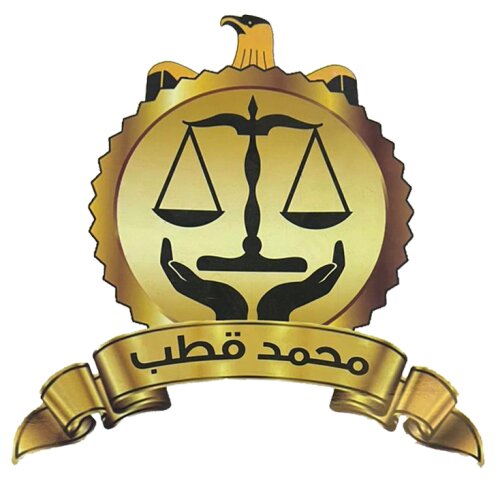Best Arrests & Searches Lawyers in Egypt
Share your needs with us, get contacted by law firms.
Free. Takes 2 min.
Or refine your search by selecting a city:
List of the best lawyers in Egypt
About Arrests & Searches Law in Egypt
In Egypt, law enforcement processes including arrests and searches are governed by a framework intended to balance state security and individual rights. These laws are primarily contained within the Egyptian Penal Code and the Criminal Procedure Code, which outline procedures for lawful detention, the conduct of searches, and the rights of those involved. Notably, the Egyptian Constitution guarantees against arbitrary detention and protects the privacy of individuals, making it crucial for law enforcement officers to adhere strictly to legal protocols.
Why You May Need a Lawyer
Engaging a lawyer in matters related to arrests and searches is often necessary for several reasons. For instance, if you believe an arrest or search was conducted unlawfully, a lawyer can help you navigate the complexities of human rights laws and challenge the validity of the actions taken. Additionally, if charges are brought against you following an arrest, legal representation becomes essential to ensure a fair trial. Lawyers can also assist in understanding the rights of detainees and guide families through the processes required for the release of an arrested individual.
Local Laws Overview
The Egyptian legal system has several critical provisions relevant to arrests and searches:
- Arrests: Arrests must generally be made with a warrant. Police can detain individuals without a warrant in cases where the individual is caught in the act, or if they are suspected to be involved in a crime punishable by imprisonment.
- Search Procedures: Searches must be conducted with warrants, especially in private residences. However, exceptions exist in situations where ensuring public safety is paramount, such as searches conducted to prevent imminent crimes.
- Rights of the Accused: Individuals have the right to legal counsel during interrogation and should be informed of their rights upon arrest.
- Duration of Detention: The law outlines specific timeframes for how long an individual can be held without charge, typically not exceeding 24 hours without judicial oversight.
Frequently Asked Questions
What are my rights if I am arrested in Egypt?
Upon arrest, you have the right to know the reason for your detention, access to legal counsel, and protection from coercion or torture. You must be presented before a judicial authority promptly.
Can the police search my home without a warrant?
Generally, police require a warrant to search a home. Exceptions include situations where immediate action is necessary to protect public safety or prevent a crime.
How long can the police detain me without pressing charges?
The law allows for a maximum of 24 hours of detention without charges, after which judicial approval is required to extend the detention.
What should I do if I witness an unlawful arrest or search?
If you witness an unlawful arrest or search, document the event and contact a lawyer or human rights organization for guidance on how to proceed.
Is the presence of a lawyer mandatory during interrogation?
While it's a right to have a lawyer present during interrogation, it's not necessarily mandatory unless you're formally charged. However, exercising this right is highly recommended.
What constitutes an illegal search in Egypt?
Searches conducted without a warrant, beyond judicially sanctioned bounds, or without due cause can be considered illegal.
Can I be arrested for refusing a search?
Refusing a search without a warrant typically cannot be grounds for arrest. However, compliance is necessary if a search warrant is presented.
What actions can I take if my rights are violated during an arrest?
If your rights are violated, you should seek legal counsel immediately to explore filing a complaint or lawsuit against the responsible authorities.
How can I gain access to legal counsel if detained?
You or a family member can request a lawyer from the authorities, or contact a law firm directly. Legal aid organizations can also provide assistance.
Are there special provisions for juveniles in arrest cases?
Yes, juveniles have additional protections under the law, including the requirement that detention and interrogation involve special juvenile justice processes.
Additional Resources
Those seeking more information and support can consult the following resources:
- The Egyptian Ministry of Justice, for official guidelines and rights during arrests.
- El Nadim Center for the Rehabilitation of Victims of Violence, offering support to those affected by police abuse.
- Legal aid organizations like the Egyptian Initiative for Personal Rights, which provide assistance and advocacy.
Next Steps
If you need legal assistance in matters related to arrests and searches, it is advisable to contact a qualified lawyer specializing in criminal law immediately. Gather all relevant information and documents, and prepare a detailed account of the events leading to your need for legal guidance. Reach out to local legal aid organizations if financial constraints exist, as they can provide services at reduced costs or for free.
Lawzana helps you find the best lawyers and law firms in Egypt through a curated and pre-screened list of qualified legal professionals. Our platform offers rankings and detailed profiles of attorneys and law firms, allowing you to compare based on practice areas, including Arrests & Searches, experience, and client feedback.
Each profile includes a description of the firm's areas of practice, client reviews, team members and partners, year of establishment, spoken languages, office locations, contact information, social media presence, and any published articles or resources. Most firms on our platform speak English and are experienced in both local and international legal matters.
Get a quote from top-rated law firms in Egypt — quickly, securely, and without unnecessary hassle.
Disclaimer:
The information provided on this page is for general informational purposes only and does not constitute legal advice. While we strive to ensure the accuracy and relevance of the content, legal information may change over time, and interpretations of the law can vary. You should always consult with a qualified legal professional for advice specific to your situation.
We disclaim all liability for actions taken or not taken based on the content of this page. If you believe any information is incorrect or outdated, please contact us, and we will review and update it where appropriate.
Browse arrests & searches law firms by city in Egypt
Refine your search by selecting a city.













